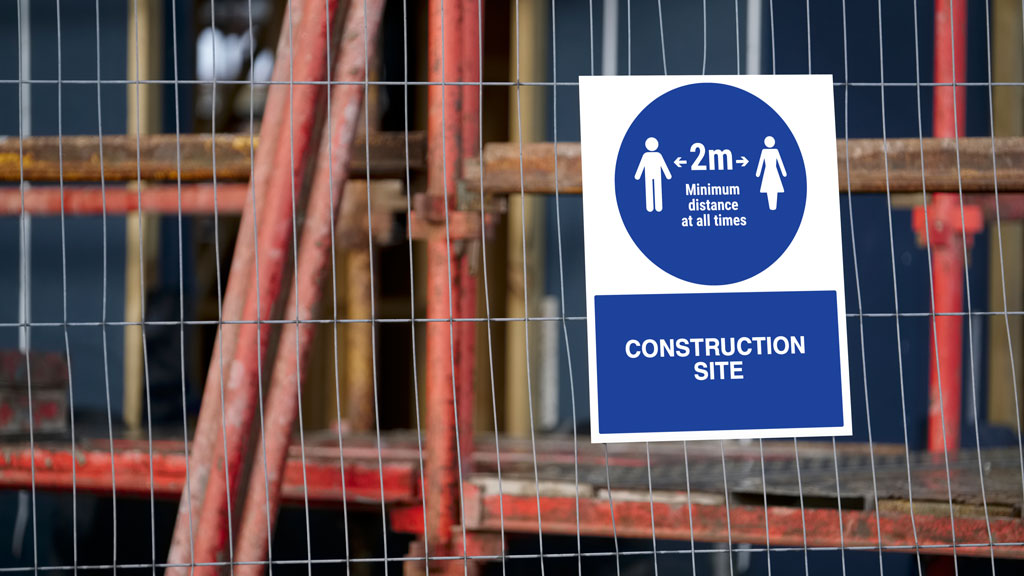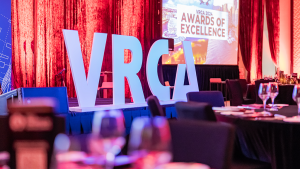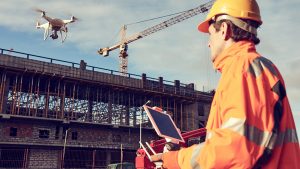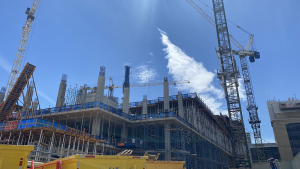A recent online town hall meeting heard a cautionary tale of how work at a construction site in suburban Vancouver was suspended in late April 2021 by an outbreak of COVID-19.
The story has a happy ending, however, because the site, operated by Syncra Construction Corp., reopened approximately 10 days after it had been closed.
Hosted by the Vancouver Regional Construction Association (VRCA), the town hall was sponsored by Builders Code and the BC Construction Association Employees Trust.
The presenters were Richard Shipway and Steve Allen of Syncra, Dave Baspaly and Grant McMillan from the Council of Construction Associations, Melanie Gorman-Ng with the BC Construction Safety Alliance, and Jason Glue from the VRCA. The moderator was Chris Atchison, president of the BC Construction Association.
The 90-minute event was billed as a frank discussion of the threat of site closures. In addition to a description of Syncra’s virus experience, the meeting covered how to navigate risks, manage an occurrence and reopen as quickly as possible.
The first COVID-19 outbreak on Syncra’s two-tower construction site on Marine Drive in West Vancouver was discovered in the third week of April. Shipway, a project director, said Syncra was concerned both for it and for the rest of the B.C. construction industry.
“Because construction was declared an essential industry in B.C., we needed to handle any COVID-19-related challenges well, so that construction continued to be considered essential and wasn’t shut down,” he said.
Allen, a senior superintendent, said after the initial outbreak, Syncra acted immediately to keep it from spreading.
“We restricted access to the site and monitored workers for any sign of infection before they entered,” he said. “Fortunately, there was high compliance by all Syncra workers and trades.”
The next week, however, the number of cases increased and on April 29, Vancouver Coastal Health (VCH) issued a 10-day closure order.
Syncra then answered all of VCH’s concerns and was able to get the closure order rescinded before the 10 days were up.
When the workers returned, they walked onto a site that was protected by an array of safety-related restrictions and protocols.
“We were as proactive as we could be, anticipated every possible challenge and prepared for them,” said Allen.
For example, Syncra divided the site in two, with separate entrances for each tower, and erected large signs telling workers to wear a mask, keep six feet apart and wash their hands.
Walkways and stairwells were so designed to enable workers to stay safely apart when passing each other.
Allen said Syncra has some tips for reducing the risk of a COVID-19 outbreak and transmission.
Syncra’s diligence in carrying its reopening plan out seems to have paid off. There have been no new cases of COVID-19 on its West Vancouver worksite since the post-closure return to work.
COCA president Baspaly and former president and strategic adviser McMillan began their presentation with some data that showed, notwithstanding the short-lived Syncra outbreak, B.C. construction with approximately 220,000 workers, has kept the pandemic largely at bay.
McMillan said from the start of the pandemic in early 2020 until May 26, 2021, WorkSafe BC accepted 3,534 COVID-19 claims from all industries.
In comparison, in the same time period it accepted 54 COVID-19 claims by construction workers, or 1.5 percent of the total.
“Although construction has been doing well, there remain challenges ahead,” said McMillan. “The pandemic is still with us and can spread rapidly and unexpectedly.”
All contractors should develop a pandemic safety plan, he said.
“The basic WorkSafe plan is good,” he said. “Customize it to fit your company’s specific needs. Be flexible and prepared to make adjustments if you need to. And there is plenty of support from the rest of the industry if you need it; don’t try to go it alone.”
For more information, see https://www.worksafebc.com/en/resources/health-safety/checklist/covid-19-safety-plan?lang=en
Gorman-Ng, a BCCSA health and exposure scientist, said although the number of infections has been going down in B.C., caution is still needed.
“COVID is among us even now,” she said. “The virus evolves over time and several variants that are transmitted more easily than the original have taken over in B.C.”
Gorman-Ng said special attention needs to be paid to indoor spaces, where transmission is more likely than outdoors.
“If you have a ventilation system, make sure it’s working properly and that all the filters are clean,” she said. “If you don’t have one, open the doors and windows to keep the air circulating and install fans.”
Glue said the town hall event was a success.
“It attracted approximately 100 participants and showed the strength of construction’s integrated network, which is there to help construction get through the pandemic,” he said.
A video of the town hall is available here https://www.youtube.com/watch?v=Rrwu9hchJAc











Recent Comments
comments for this post are closed